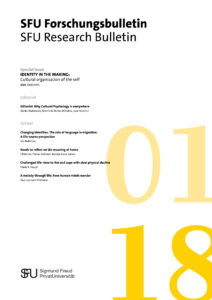Sigmund Freud University Berlin (SFU)
SFU Berlin, an Austrian private university, began teaching and researching psychology in 2013 on the site of the historic airport in Berlin-Tempelhof. It has campuses in several European countries. SFU is committed to critical and multi-professional discourse. As a purely private university, it is independent of public funding and therefore not subject to political, religious or economic dictates. In terms of research, the combination of different academic cultures stimulates the development of transdisciplinary research strategies. In addition, the university’s transnational structure fosters both cross-border research collaboration and transcultural communication. Overall, the SFU strives to promote human rights-based, democratic and polyvalent societies. An important building block for this is the personal development of our students, who go out into the world with the appropriate knowledge. Therefore, the personal development of our students is considered as important as academic and professional skills.
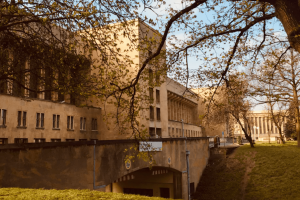


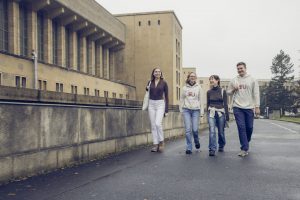

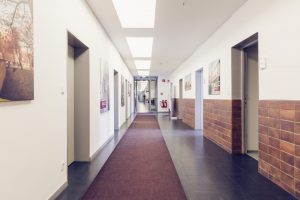
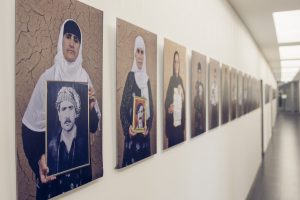

Research at the SFU Berlin
Cultural psychology research projects at SFU Berlin focus on understanding and describing (developmental) processes or clinical phenomena in order to derive general principles and practice guidelines.
Psychological, social, and cultural realities are seen as the result of social construction and negotiation processes, and it is important to focus clearly on the subjective views of the people being studied. As people are seen as open systems in constant flux, the context and era in which they operate, and which they actively help to shape, play a key role. Latent structures of meaning making may also be important, which require specific methodological approaches.
Methodologically, content analysis, in-depth hermeneutics or methods such as The Listening Guide or Positioning Analysis are used to name but a few of the qualitative approaches that are frequently used. One goal for the future is to strengthen participatory research approaches. In general, however, methods need to be adapted and developed according to the research objective, and we also invite students to do this.
How to get involved?
SFU Students: In the Master’s program, students are given the opportunity to look at their own topics from a cultural-psychological perspective and to investigate them in small ‚pilot studies‘. The projects are always presented at the end of the semester as part of a public poster presentation at the university and/or online. In this way, experience is gained, feedback is given, introspection stimulated, and students can decide whether they want to continue the research as part of their Master’s thesis and/or publish the projects.
Examples of projects can be found here:
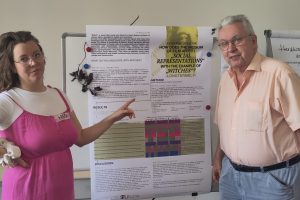
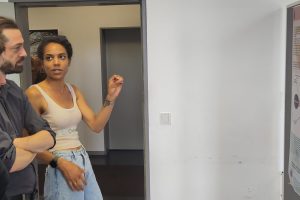
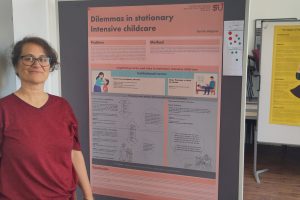
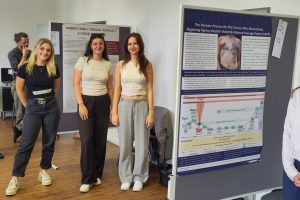
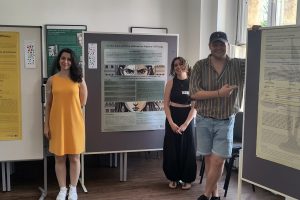
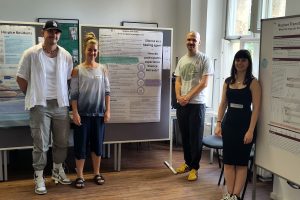
Examples for published projects of students:
- Huf, N. (2022). Unfrozen: A Voice-Centered Listening Analysis of Self-Acceptance. In Theory and history in the human and social sciences (S. 55–69). https://doi.org/10.1007/978-3-030-93535-1_4
- Namdiero-Walsh, A., Massoumi, R., Szarata, V. & Watzlawik, M. (2022). Does Magical Thinking Bind or Separate Us? A Re-analysis of Data from Germany, India, South Korea, and Turkey. Human Arenas. https://doi.org/10.1007/s42087-022-00309-3
- Rongits, N. (2022). Researcher-Participant relationship: Strategic dances in research encounters. Human Arenas, 7(3), 576–594. https://doi.org/10.1007/s42087-022-00278-7
- Guenther, L. P. F. (2020). Homo Allegoris: How Art Perception and Allegory Analysis Reveal the Life Script Ideology. Human Arenas, 4(3), 471–486. https://doi.org/10.1007/s42087-020-00117-7
Conference participation:
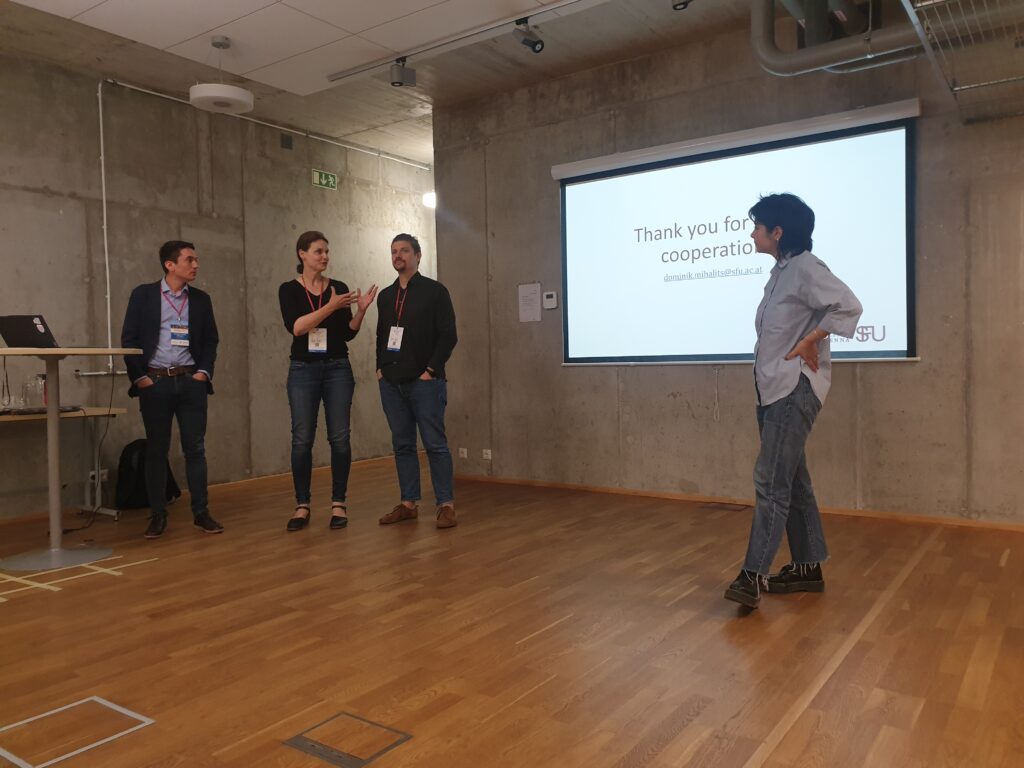
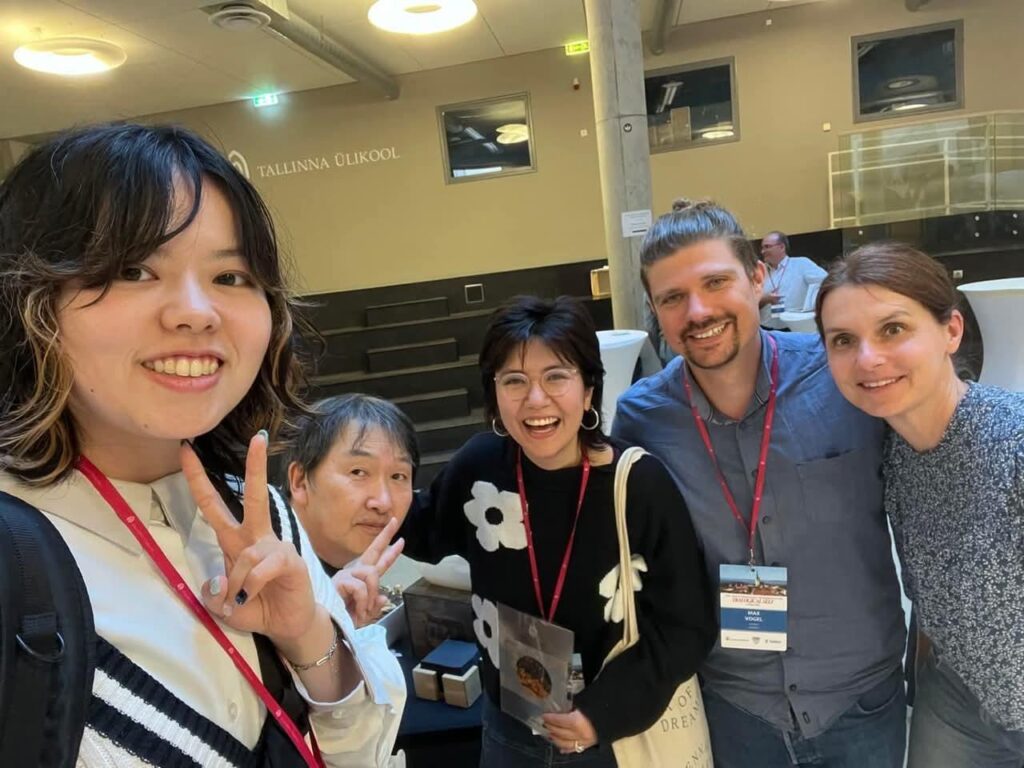
Dialogical Self Conference – Tallinn 2024 / Symposium The dialogicality of I-Positions in challenging situations: From feedback to daily life extremes / Chairs: Meike Watzlawik, SFU Berlin & Dominik Stefan Mihalits, SFU Vienna / Participating Students: Max Vogel (Master Program) and Mona Ruge (Bachelor Program)…
…networking with Japan (Ritsumeikan University).
Other Students: Students from other universities are welcome to network and collaborate with our students or faculty where there is a thematic fit. Occasionally, it is also possible for us to (co-)supervise theses. SFU participates in the Erasmus program for this purpose, so semesters abroad can be organized. In particular, we have a cooperation agreement with the University of Aalborg, which enables students from Denmark to do research internships at SFU Berlin. However, here too the feasibility depends on the thematic fit and free capacities. Please do not hesitate to contact us if you are interested in our work.
Ph.D. students: SFU Berlin organizes an annual Winter School together with Aalborg University, FU Berlin and SFU Vienna. The series is called: Culture, Psychology, and Qualitative Research. Each time a focus topic is discussed and experts are invited to give guest lectures before Ph.D. students are given the opportunity to present their own projects. The last Winter School co-organized by Berlin took place in 2024 under the title Blind Spots and Unequal Power Relations: What does it take to construct knowledge globally? A report can be found here: https://www.kommunikation.aau.dk/annual-winterschool-2024-report-n106031 If interested, please check our Event Calendar!
Scientists: We welcome inquiries about cooperation projects and are always interested in promoting the exchange of teaching staff (e.g., through Erasmus Plus).
Representative
Meike Watzlawik holds a diploma in psychology and a doctorate (scholarship of the state of Lower Saxony) and habilitation from the Technical University Braunschweig. She is a Humboldt Fellow (Feodor Lynen Fellowship) and has worked, among others, at Clark University, Worcester, USA, in the field of cultural psychology with Prof. Jaan Valsiner. She is Associate Editor of the journal Culture & Psychology, editor of several books, and author of numerous articles (see publications database). In addition, she is trained in triadic career counseling and holds a limited practitioner’s license in the field of psychotherapy. Her research interests focus on human identity development with an emphasis on adolescence, siblings, sexual and gender diversity, career, and culture. In 2023 she was awarded the ‚Ernst E. Boesch Prize for Services to the Promotion and Dissemination of Cultural Psychology‘ by the ‚Society for Cultural Psychology and the Hans Kilian and Lotte Köhler Centre‘.
Books/book chapters (selection):
Articles and paper presentations (selection):
- Watzlawik, M. (2023, January). (Collective) Narratives: A Closer Look at Social Dominance and Social Guidance. Paper presented at the 20th Anniversary TEM Conference, Ritsumeikan University, Osaka, Japan.
- Carpinelli, L. & Watzlawik, M. (2023). Anorexia nervosa in adolescence: Parental narratives explore causes and responsibilities. International Journal of Environmental Research and Public Health, 20(5), 4075.
- Watzlawik, M., Herbig, L., Pfleger, A., Lorenz, L., & Rausch, M. (2023). Impfen ja oder nein? – Die Corona-Impfung im Spannungsfeld zwischen Individuum und Gesellschaft [Vaccination yes or no? The corona vaccination in the field of tension between the individual and society]. In K. Mlodoch (Ed.), Soziale, kulturelle, ökonomische und globale Dimensionen der SARS-CoV2-Pandemie und der Strategien zu ihrer Eindämmung. Jahrbuch für Kritische Medizin und Gesundheitswissenschaften (Vol. 54, pp. 98-121). Hamburg: Argument.
- Watzlawik, M. & Brescó, I. (invited submission, 2017). The Self in Movement: Being identified and identifying oneself in the process of migration and asylum seeking. Integrative Psychological and Behavioral Sciences, 51(2), 244-260.
- Watzlawik, M. & Kullasepp, K. (2016). Career as affective journey: How constant flux challenges the search for career pathways and counseling. Integrative Psychological and Behavioral Science, 50, 492-506.


